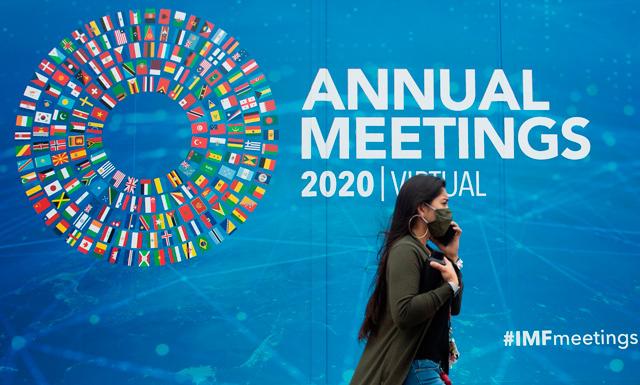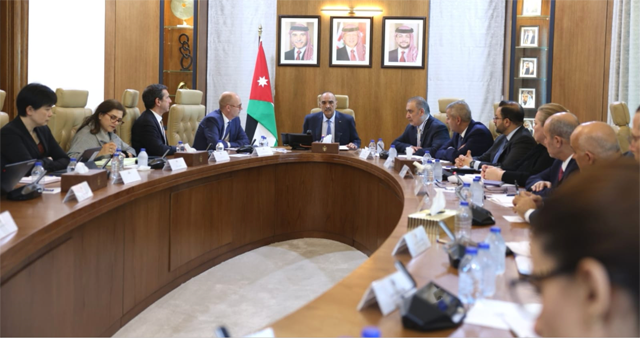You are here
IMF urges governments to invest in job-creating projects
By AFP - Oct 14,2020 - Last updated at Oct 14,2020

A woman walks past a promotional poster for the virtual 2020 Annual Meetings outside the International Monetary Fund at their headquarters in Washington, DC, on Tuesday (AFP photo)
WASHINGTON — As demands increase on their limited resources, governments will need to raise taxes on wealthier families and firms and target spending away from protecting "old jobs", the International Monetary Fund (IMF) said on Wednesday.
As countries continue to struggle with the economic damage inflicted by the COVID-19 pandemic, the IMF's Fiscal Monitor report also urges policymakers to invest in job-creating projects like infrastructure and green energy.
Governments have injected a stunning $12 trillion into the global economy since the start of the pandemic, but now "many countries will need to do more with less, given increasingly tight budget constraints," Vitor Gaspar, head of the IMF's Fiscal Affairs Department, said in a blog post about the report.
As the recovery continues, policymakers "should become more selective and avoid standing in the way of necessary sectoral reallocations as activity resumes", he and his coauthors said.
"Support should shift gradually from protecting old jobs to getting people back to work," by reducing measures like wage subsidies in favour of training to give people skills to find new employment.
With low interest rates making borrowing easier, boosting public investment — beginning with maintenance and ramping up projects — can create jobs and spur economic growth.
Steps like a broad tax cut are "unlikely to be cost-effective" and would have limited impact on promoting growth and jobs, the report said.
A better alternative would be "to accelerate job-intensive public investments such as maintenance or public works".
With public debt in many cases approaching 100 per cent of GDP, including in the United States, governments also may need "revenue-enhancing measures, including both increasing tax compliance and the progressivity of taxes on more affluent" firms that may have profited from the pandemic, the IMF said.
"The design of corporate income taxes to appropriately capture very high profits of firms in a rapidly changing economy, including those that made windfall profits during the crisis, can help finance priority areas."
Related Articles
World economic leaders are being urged to rally around a plan to let government do what it does best — spend money — in an effort to buoy a global economy that remains slack and slowing.
AMMAN — Prime Minister Bisher Al Khasawneh on Wednesday met with the International Monetary Fund (IMF) delegation, headed by Ron van Rooden,
ISLAMABAD — Pakistan announced a budget on Friday of 8.4 trillion rupees ($54 billion) for the next fiscal year, basing it on an ambitious g













